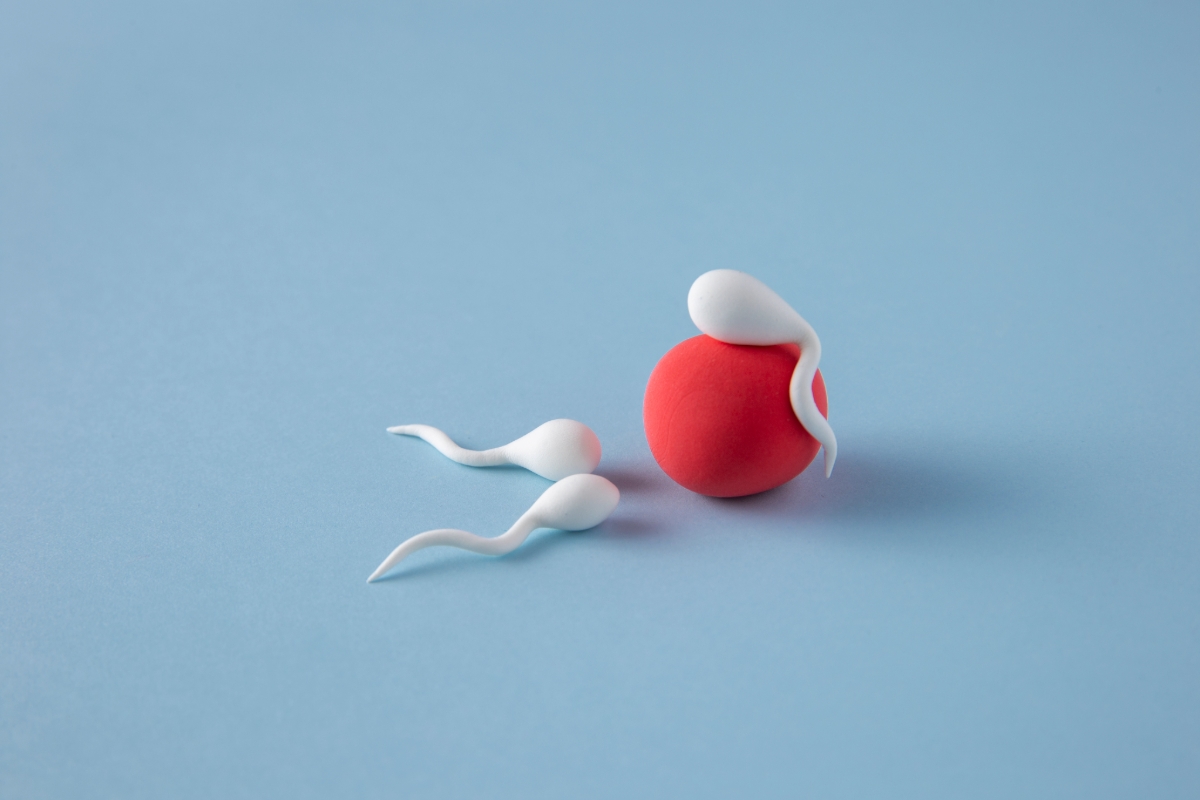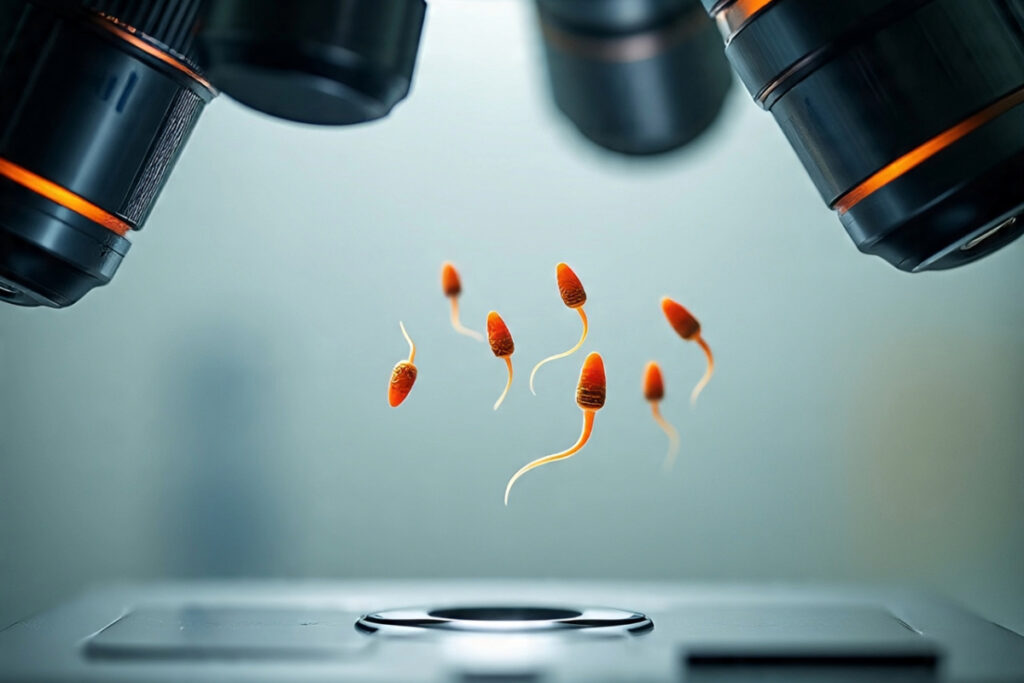Let’s talk about something that doesn’t always get the spotlight it deserves: male fertility.
For some reason, when people hear the word infertility, their minds often jump straight to women. Hormones, periods, eggs — you know the drill. But here’s the truth: in nearly half of all couples who struggle to conceive, the man’s fertility plays a role too. That’s right — it’s not just a “her” thing.
So, if you’re thinking about starting a family — or even if that’s still a few years down the road — then it’s important to understand how male fertility works, what can affect it, and most importantly, what you can do about it. Let’s take it one step at a time.
First Things First: What Exactly Is Male Fertility?
Okay, at its core, male fertility is about whether your body can produce healthy sperm — and whether those sperm can make their way to an egg and fertilize it.
Seems easy, doesn’t it? Yet, like many aspects of biology, it is somewhat more complex. There are a few key players here:
- Sperm count: How many swimmers are in each ejaculate?
- Sperm motility: How well can they move? Because let’s be honest — they’ve got quite a journey to make.
- Sperm shape (morphology): Are they formed correctly so they can actually do their job?
- The substance that transports the sperm is called seminal fluid.
If any of these pieces are out of whack, it can make conception harder. Sometimes a little harder, sometimes a lot.
Common Causes of Male Fertility Issues
There’s no single cause of male fertility problems — it can be a mix of health, lifestyle, genetics, and sometimes, sheer bad luck. Let’s go through a few of the usual suspects.

Low Sperm Count
Probably the first thing people think of. This means you’re not producing enough sperm. Less sperm = fewer chances of one reaching the egg.
Poor Sperm Motility
Even if you have lots of sperm, they still need to swim in the right direction at the right speed. However, if they’re sluggish or swimming in circles, then they’re unlikely to make it.
Abnormal Sperm Shape
The shape matters. Sperm with weirdly shaped heads or tails often can’t penetrate the egg properly.
Blockages or Injury
Sometimes sperm production is fine, but a physical blockage keeps sperm from getting where they need to go. Prior injuries, surgeries, or conditions like varicoceles (enlarged veins in the scrotum) can contribute.
Hormonal Imbalances
Yep — men have delicate hormone balances too. Low testosterone or other hormone issues can affect sperm production.
Genetics
In some cases, infertility runs in families. Certain chromosomal conditions can affect fertility, even if everything else seems fine.
The Sneaky Lifestyle Factors That Can Wreck Sperm Health
Here’s the part that makes some guys groan — because yes, what you do does affect your fertility. Sometimes in ways you don’t expect.

👉 Smoking — Smoking can disrupt the migration of sperm and reduce their number.
👉 Excessive alcohol — The occasional beer? Fine. But heavy drinking can drop testosterone levels and harm sperm production.
👉Obesity can disrupt hormone levels, which may negatively impact sperm production.
👉 Recreational drugs like marijuana, anabolic steroids, and even some prescription medications have been shown to harm sperm health.
👉Heat matters too. Hot tubs, saunas, and even tight underwear can raise the temperature of the testicles — and sperm aren’t fans of the heat.
👉 Stress — Believe it or not, chronic stress can take a toll on fertility too.
👉 Poor diet & lack of exercise — Your body makes better sperm when it’s getting the right fuel and staying active.
Signs That Something Might Be Up
Here’s the tricky part: most of the time, male fertility issues don’t come with obvious symptoms. You could feel totally healthy and still have sperm that aren’t doing what they should.
That said, here are a few things that could signal a problem:
- Difficulty getting or keeping an erection
- Problems with ejaculation
- Low sex drive
- Pain, swelling, or lumps in the testicles
- Smaller than average testicles
👉 If any of these ring a bell? Definitely worth talking to a doctor.
Getting Tested: What to Expect
So, if you and your partner have been trying for a while — typically a year if you’re under 35, or six months if she’s over 35 then it’s a good idea for both of you to get checked out.
For men, the process usually starts with:
✅ Semen analysis — You’ll provide a sample, and they’ll check sperm count, shape, movement, etc.
✅ Blood tests — To look at hormone levels.
✅ Ultrasound — Sometimes used to check for blockages or varicoceles.
✅ Genetic testing — In certain cases, if nothing else explains the problem.
Don’t let the idea of testing freak you out. The goal isn’t to point fingers — it’s to figure out what’s going on so you can take action.
What Can You Do to Boost Fertility?
The good news? Small adjustments can often have a big impact. Here’s what’s worth focusing on:
- Ditch smoking and cut back on booze. Your sperm will thank you.
- Aim for a healthy weight. Even losing a few kilos can improve hormone balance.
- Eat like you mean it. Foods rich in antioxidants (think berries, nuts, leafy greens) help protect sperm from damage.
- Move your body. Regular exercise supports testosterone levels — just skip the excessive cycling or weightlifting with steroids.
- Cool things down. Avoid long hot baths, tight jeans, and anything else that turns up the heat down there.
- Manage stress. Easier said than done, but your mental health is part of the puzzle too.
In some cases, your doctor might recommend treatments: medications to boost hormones, surgery to correct a blockage or varicocele, or assisted reproductive techniques like IVF or ICSI.
Myths About Male Fertility (Let’s Bust a Few)
💥 “If I can get an erection, I must be fertile.” Nope. Sperm quality and quantity have nothing to do with your ability to get or maintain an erection.
💥 “It’s always the woman’s issue.” False. Male factors are involved about 40-50% of the time.
💥 “There’s nothing I can do to improve sperm health.” Actually, lifestyle changes can help in many cases.
💥 “Age doesn’t matter for men.” While it’s true men stay fertile longer, sperm quality can decline with age, especially after 40.
When to See a Specialist
If you and your partner have been trying with no luck, or if you have any of the symptoms we mentioned earlier, don’t wait too long.
In general:
👉 Under 35? See someone after a year of trying.
👉 Over 35? Go at six months.
👉 Any worrying symptoms? Sooner is better.
A fertility specialist can help pinpoint the issue and guide you toward the best next steps.
Final Thoughts
Here’s the deal: male fertility isn’t some mysterious black box. It’s biology — and like any part of your health, it benefits from attention, care, and sometimes, help from professionals.
So, whether you’re trying now or just planning ahead, don’t leave it to chance. Instead, take care of yourself, stay informed, and remember that if challenges arise, you’ve got options.
Ultimately, your journey to fatherhood might look different than you expected. However, it’s still your journey — and it’s worth giving it the best shot you can.
FAQs
Several factors impact male fertility, including age, obesity, stress, smoking, alcohol use, poor diet, exposure to heat, certain medications, and underlying medical conditions like varicocele or hormonal imbalances.
The most common way is through a semen analysis, which checks sperm count, motility (movement), shape, and overall volume. Blood tests, physical exams, and ultrasounds may also be used if needed.
Yes, male fertility generally declines with age. Sperm quality, including motility and DNA integrity, tends to decrease after age 40, which can affect conception and increase the risk of miscarriage or genetic issues.
Absolutely. Regular exercise, a balanced diet rich in antioxidants, avoiding smoking and alcohol, managing stress, and maintaining a healthy weight can all boost sperm health naturally.


